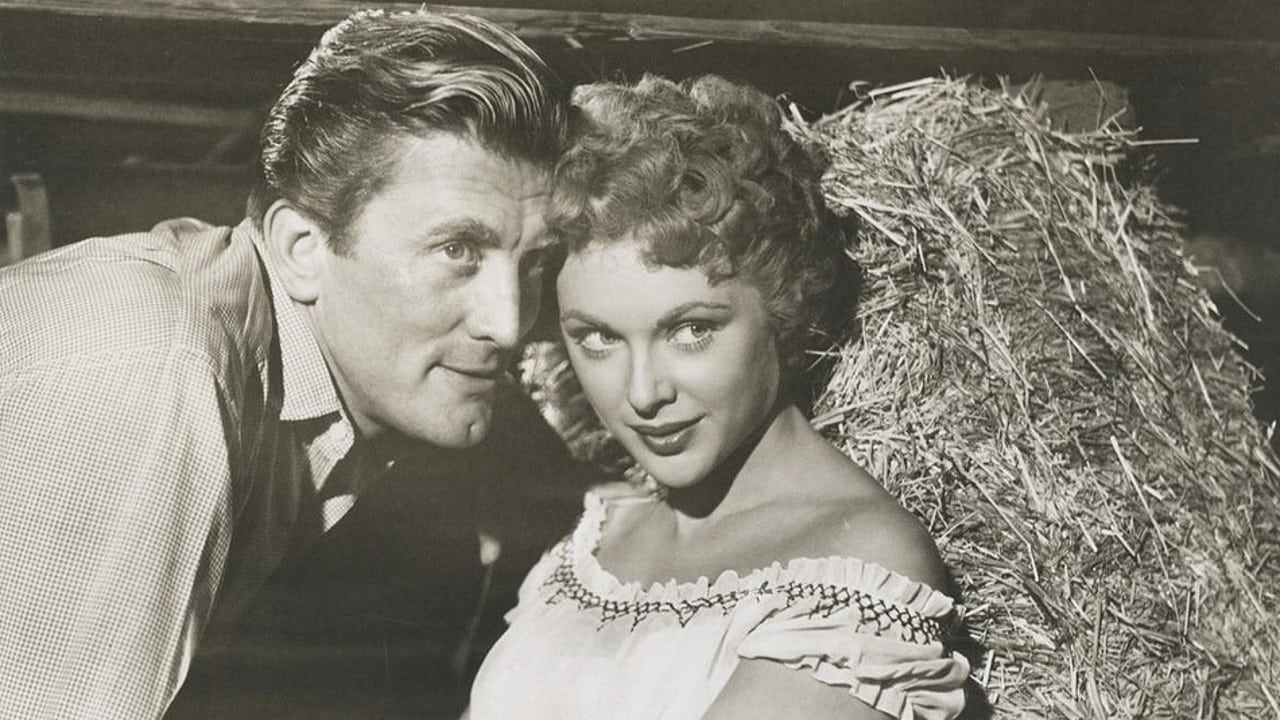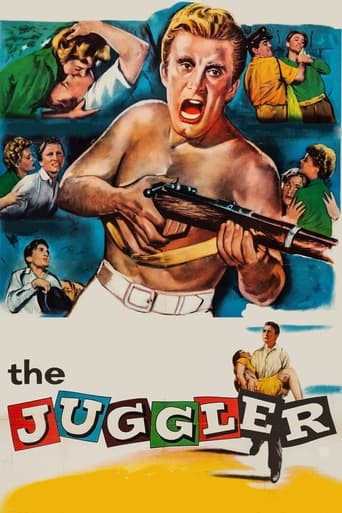

Stanley Kramer always made successful films dealing with social issues and this 1953 film is no exception to that rule.As a Holocaust survivor who lost his wife and children, Hans Muller (Douglas) comes to Israel in 1949.He reminded me somewhat of Rod Steiger in "The Pawnbroker," as he is unable to come to grips with what has occurred in his life and he constantly confuses his current life with what has happened to him in the past. A routine encounter with an Israeli policeman leads to near tragedy and Douglas runs away to a Kibbutz where he finds love and understanding with a woman and a young sabra who he meets along the way.The final scene where Douglas is trapped in a one- room area is similar to that of his captivity in a concentration camp. The torture expressed on his face was reminiscent of what he would exhibit in "Lust for Life" years later.
... View MoreThe year is 1949 as Jewish refuges arrive in the newly formed country called Israel. Among them is Holocaust survivor Kirk Douglas (as Hans Muller). Once a popular entertainer and expert juggler, Mr. Douglas was used by the Nazis to test drugs. Born in Munich, Germany, he was also tortured in a concentration camp. Less lucky, his wife and children were murdered. Understandably, Douglas is suffering from the horrors he experienced. At one point, he mistakes an Israeli policeman for a Nazi and sends the lawman to the hospital. While the officer wavers between life and death, Douglas goes on the run, believing he will be accused of murder...Along the way, Douglas befriends teenager Joseph "Joey" Walsh (as Yehoshua "Josh" Bresler). The apparently orphaned boy begins as a guide - but he and Douglas quickly develop a "father-son" relationship. In keeping with the familial theme, Douglas later meets young blonde Milly Vitale (as Ya'El). The beautifully-figured widow lost her husband in the recent Arab-Israeli War - and you'd be safe in predicting a romance between Douglas and Ms. Vitale is in the script. It's brought to you by writer Michael Blankfort, producer Stanley Kramer and director Edward Dmytryk. They've got a good lead with Douglas and nice-looking film, shot party on location...Douglas makes a very believable juggler, if not a German. The performance by young Walsh is also quite appealing. The subject matter is excellent, but we don't see much beneath the surface; everything is left to Douglas' anguish. We wonder why he is not returned to his home and given back his career and wealth - after all, we won the war. Watch for a startling scene in which adorably cute Beverly Washburn (as Susy) refuses to give her autographed picture of "The Juggler" to the policeman (Paul Stewart) hunting Douglas. Her father tells the girl, "Sometimes, for the sake of the law, we have to give up our friends." That line stands out like a sore thumb.****** The Juggler (5/5/53) Edward Dmytryk ~ Kirk Douglas, Joseph Walsh, Milly Vitale, Paul Stewart
... View MoreHe came out of a camp, and his family was killed in a concentration camp. He is now in Israel, in another camp where they are working on his integration, but somehow he can't believe it's all over. He runs away and mistakes a policeman for a Nazi. What is nice about this film is that it shows an Israel, just after its creation, with a remarkable cinematography in black and white by J. Roy Hunt. We feel throughout the film a spirit of collaboration, of trying to help, in spite of Hans Muller's (Kirk Douglas) action of hitting the policeman, seeming inexcusable. Also a great scene of Muller's redemption dancing the Hora. Like another reviewer I first saw this film with my father ,was greatly impressed, tried to find it with no success until now. Apart from some scenes where Douglas overacted and the final scene, overdone, this film did not age. And the fact that it shows the country of Israel, the language and the people, so unusual for an American film at that time, just that, makes it worth seeing.
... View MoreKIRK DOUGLAS struggles to forget the horrors of a concentration camp in THE JUGGLER, another one of Stanley Kramer's serious socially conscious films of the '50s. Unfortunately, the end result is a film that doesn't really connect with its target audience despite a solid performance by Douglas as the troubled Jew from Israel unable to overcome his fear and bitterness.Unfortunately, Kramer had a habit of assigning George Antheil to score his films. Antheil contributes another inappropriate score heavily accenting any melodramatic moment that points up Kirk's anguish, much the way he did in Kramer's NOT AS A STRANGER. It didn't work there and it doesn't work here, especially during the "escape" scene where the music reaches a frenzied fever pitch of discordant notes.It's hard to fully sympathize with Douglas' tormented character and that is the film's chief handicap. As the man tracking down the fugitive, PAUL STEWART does his usual workmanlike job. Trouble is, there's an almost documentary feel to the story and its pivotal character is never fully fleshed out, remaining somewhat of an enigma despite Douglas' good performance. When romance comes into the story with the entrance of MILLY VITALE, Douglas' character softens a little under her compassionate care.Some vivid glimpses of Israel, circa 1949, and good location photography gives the story an authentic air, but the story values are never more than ordinary and the total effect is bland.Worthwhile mainly for Kirk Douglas fans, it fails to make the impact intended as a serious study of a man haunted by prison camp memories.
... View More